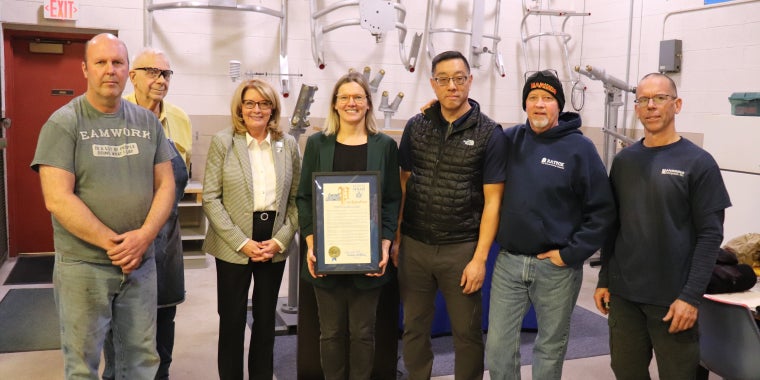
Column: We must do better for children and adults with disabilities
Senator Pam Helming
August 6, 2024
-
ISSUE:
- Developmental Disabilities

Like so many other businesses, organizations that provide services to people with intellectual and developmental delays or disabilities are having a tough time finding and keeping qualified employees.
A serious shortage of direct support professionals, teachers, and clinicians means long waiting lists for essential services like medical and dental appointments, housing, and day treatment programs, as well as the loss of social and recreational opportunities. High turnover rates for direct support staff are costing provider agencies thousands of dollars each year, making it difficult to continue crucial services.
The struggle to retain direct care professionals is not new. In the 1980s, I worked as a residential manager at a group home serving adults with developmental disabilities. It was hard to find and keep qualified staff. Low pay then and now remains the biggest issue. State and federal governments must work together to make meaningful changes to the reimbursement rates these agencies receive, or the situation will only get worse.
According to a Commonwealth Fund report, the direct care sector in the United States is expected to add over 1 million new jobs by 2031, more than any other occupation. But where will we find the people to fill these positions?
In New York State, organizations providing these services hoped 2024 would be the year that included adequate reimbursement rates to cover inflation and years of underfunding; that pay for direct care professionals could finally be raised. While our current state budget takes some important steps toward addressing the underfunding issue, it falls short of properly investing in programs serving our most vulnerable citizens. As a result, organizations like Ability Partners (CP Rochester, Happiness House, and Rochester Rehabilitation Center), continue to struggle.
For example, Ability Partners has preschool classrooms that can’t open because of difficulties retaining qualified teachers, paraprofessional staff, and clinicians. This has led to waitlists for physical, occupational, and speech therapy, as well as behavioral services. This delays the assistance some children and young adults need to reach their full potential.
Studies have shown early intervention can lead to improved developmental outcomes, increased academic success, enhanced social skills, and decreased need for special education services. Preventive and skilled services are crucial to avoid much more costly acute and long-term care needs.
To help us implement meaningful solutions, I co-sponsored legislation (S.1198A/A.10175) directing the Commissioner of Health to do a comprehensive assessment of the existing methodology used to determine payment for early intervention screenings, evaluations, and services, and to recommend needs under the program. In a show of true bipartisanship, the bill passed both houses. It is now awaiting the Governor’s signature.
We must prioritize the effective delivery of services to children and adults with special needs in the next state budget. We can and must do more for individuals with intellectual and developmental disabilities. They deserve it and New York will be better for it.
###



